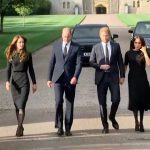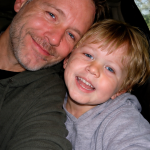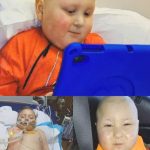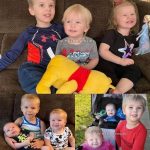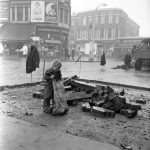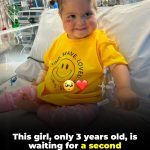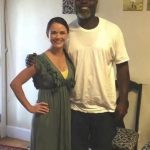In 1964, Jacklyn Gise gave birth to her son Jeff while still in high school in Albuquerqu
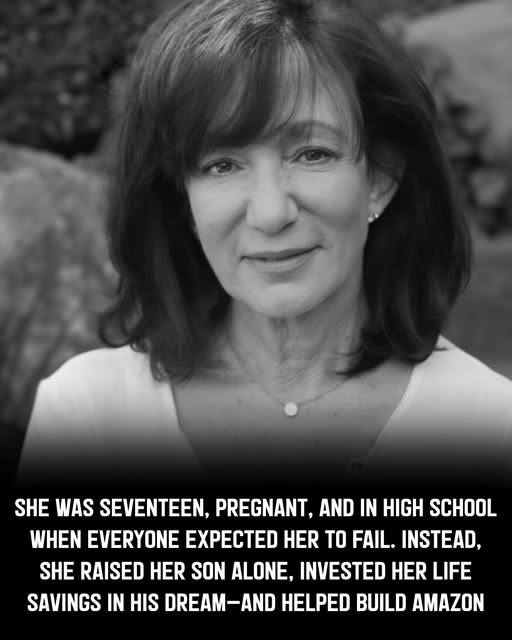
In 1964, Jacklyn Gise gave birth to her son Jeff while still in high school in Albuquerque, New Mexico. She was seventeen years old—just two weeks past her seventeenth birthday.
She was newly married to Ted Jorgensen, an 18-year-old unicyclist who owned a bike shop. They’d married hastily in Ciudad Juárez, Mexico, months before Jeff’s birth, then had a second ceremony in the United States.
But the marriage was already failing. Ted struggled with alcohol and finances. The weight of fatherhood at eighteen was more than he could handle.

This wasn’t ancient history. This was 1964—the year the Beatles appeared on Ed Sullivan, the year the Civil Rights Act passed. In conservative Albuquerque, being a pregnant teenager was scandalous.
Jacklyn’s high school tried to prevent her from graduating. They relented only after her father negotiated with the principal—but with humiliating conditions.
She couldn’t eat lunch in the cafeteria. She couldn’t socialize with other students. She was banned from walking across the stage at graduation.
Despite the stigma, she graduated.
When Jeff was seventeen months old, in June 1965, Jacklyn made a choice that changed their lives forever.
She filed for divorce.
She moved back in with her parents in Albuquerque, raising her infant son as a single mother while most of her former classmates were starting college or settling into married life.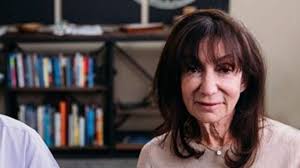

She had support from her parents—her father, Lawrence Preston Gise, was a regional director for the U.S. Atomic Energy Commission. But she was determined to build her own life.
She enrolled in night school to continue her education. And because she couldn’t always afford or arrange childcare, she brought baby Jeff with her to class, sitting him quietly while she studied.
She worked at the Bank of New Mexico to support them both.
There were long hours. Exhausting days. Moments when the future seemed impossible.
But Jacklyn didn’t give up.
In the mid-1960s, while working at the bank, she met a young man named Miguel Bezos.
Miguel was a Cuban immigrant with a story of his own. He had fled Castro’s Cuba at age fifteen through Operation Peter Pan, arriving in the United States alone, speaking no English.
He worked his way through the University of New Mexico, studying engineering. He overcame language barriers, cultural displacement, and financial hardship to build a new life.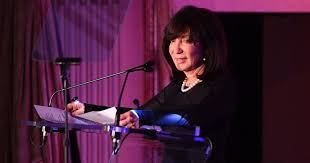

In April 1968, when Jacklyn was twenty-one years old, she and Miguel married.
Shortly after the wedding, Miguel officially adopted four-year-old Jeff, giving him the Bezos surname and becoming the father figure Jeff would credit for shaping his values.
Ted Jorgensen agreed to the adoption and to not be involved in his biological son’s life. He wouldn’t learn what became of Jeff until 2012, when an author tracked him down for a book about Amazon.
Jacklyn and Miguel built the kind of home Jacklyn had never known as a teenage mother struggling alone: one grounded in education, stability, kindness, and ambition.
They moved to Houston, where Miguel worked as a petroleum engineer for Exxon. Later they relocated to Miami.
They had two more children—daughter Christina and son Mark—creating a close-knit family.
Jacklyn eventually earned her degree from Saint Elizabeth University at age forty, proving it’s never too late to finish what you start.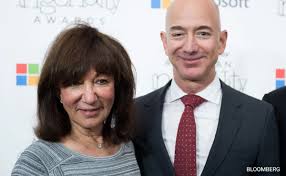

Through it all, she encouraged curiosity in her children.
When Jeff became fascinated with computers and technology, she nurtured that interest. When he dreamed of building something bigger, she trusted him completely.
Jeff spent summers on his maternal grandfather’s ranch in Cotulla, Texas, learning to fix windmills, repair tractors, and solve problems without instructions.
His grandfather taught him a philosophy Jacklyn reinforced: “There really aren’t any problems without solutions. Obstacles are only obstacles if you think they’re obstacles. Otherwise, they’re opportunities.”
Years later, in 1994, Jeff Bezos was working a stable, well-paying job on Wall Street. He had every reason to stay comfortable.
But he had an idea: an online bookstore that could sell any book to anyone, anywhere.
It was risky. The internet was new. E-commerce barely existed. Most people thought the idea was crazy.
Jeff told his parents he was quitting his job to start this company from his garage in Seattle.
Jacklyn and Miguel didn’t hesitate.
In 1995, they invested their life savings—$245,573—into their son’s vision, receiving 6% equity in exchange.
They didn’t invest because they understood technology or e-commerce. They invested because they believed in Jeff.
That $245,573 stake would eventually be worth billions of dollars as Amazon grew from an online bookstore into one of the world’s most valuable companies.
But Jacklyn’s story isn’t about the money.
It’s about what she did with it.
She and Miguel co-founded the Bezos Family Foundation, focused on early childhood development and education. For more than twenty years, Jacklyn served as its president.
They donated $710.5 million to the Fred Hutchinson Cancer Center to advance cancer research.
They funded programs like Vroom and the Bezos Scholars Program, creating opportunities for young people across the globe.
They understood something profound: privilege isn’t just about having resources. It’s about what you do with them.
Jacklyn had been a teenage mother facing expulsion from school, raising a baby alone while attending night classes.
She became a billionaire philanthropist using her wealth to ensure other young people—especially those facing obstacles—had opportunities she’d had to fight for.
In 2020, Jacklyn was diagnosed with Lewy body dementia, a progressive neurological disorder affecting memory, movement, and thinking.
On August 14, 2025, she died peacefully at her Miami home, surrounded by family—her husband Miguel, her children Jeff, Christina, and Mark, and her grandchildren.
She was seventy-eight years old.
Jeff shared the news on Instagram, calling her his “fierce advocate and supporter.”
In previous interviews, he’d been even more direct: “I won the lottery with my mom.”
He wasn’t talking about luck.
He was talking about her resilience. Her refusal to accept that a mistake at sixteen meant her life was over. Her belief that obstacles were opportunities.
He was talking about a mother who brought her baby to night school because she couldn’t afford childcare but refused to stop learning.
Who married a man who saw her son not as baggage but as family.
Who invested her life savings in a dream that seemed impossible.
Who used the fortune that resulted to create opportunities for others.
Jacklyn Bezos’s legacy isn’t Amazon’s market capitalization or Jeff’s net worth.
It’s the reminder that circumstances don’t define destiny. Choices do.
That teenage pregnancy doesn’t have to mean the end of possibility—it can be the beginning of purpose.
That parents who believe in their children can change the trajectory of entire industries.
That wealth means nothing if it isn’t used to open doors for others.
Before Amazon transformed retail, before Blue Origin reached space, before Jeff Bezos became a household name, there was a seventeen-year-old girl in Albuquerque who refused to let shame or stigma define her future.
She graduated high school despite being banned from her own ceremony.
She attended night school with a baby on her hip.
She worked, studied, raised her son, remarried, earned her degree at forty.
And when her son dreamed of something impossible, she bet everything on him.
Not because she knew he’d succeed.
But because she’d spent a lifetime proving that determination matters more than circumstance.
Jacklyn Bezos didn’t just raise a billionaire.
She taught the world that resilience, faith, and love that never wavers can build futures no one thought possible.
One quiet choice at a time.
